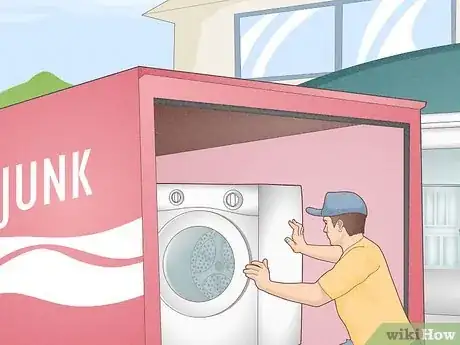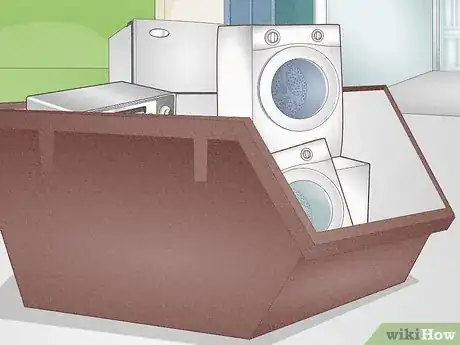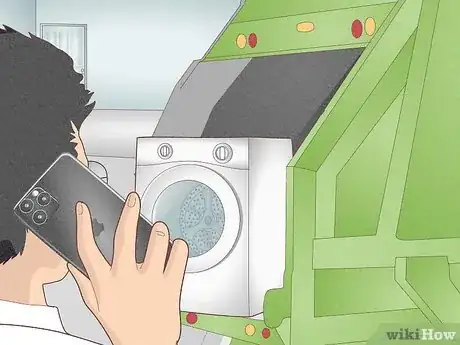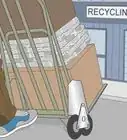This article was co-authored by wikiHow Staff. Our trained team of editors and researchers validate articles for accuracy and comprehensiveness. wikiHow's Content Management Team carefully monitors the work from our editorial staff to ensure that each article is backed by trusted research and meets our high quality standards.
There are 11 references cited in this article, which can be found at the bottom of the page.
Learn more...
You just received a brand-new washer and dryer that you love, but what do you do with your old ones? You could always call a friend to help move them, but that’s lot of work...Home appliances are heavy and tricky to transport by hand. Luckily, there are tons of ways to dispose of your old appliances without breaking a sweat! Whether you’re looking to recycle your old machines or earn some cash by selling them, here’s a full list of options for what to do with an old washer and dryer.
Things You Should Know
- Donate functioning washers and dryers to extend their life and benefit your local community!
- Use the RAD Partner program to minimize the environmental effects of improper disposal and prevent old appliances from ending up in landfills.
- Hire a professional junk removal service to avoid heavy lifting and prevent injuries from moving large appliances yourself.
- Earn money by scrapping your washer and dryer and separating their interior metals. Or, sell your old appliances to a scrap yard instead.
Steps
Donate your old washer and dryer to charity.
-
Support your community by donating functioning appliances to those in need. Charities like the Salvation Army and Habitat for Humanity accept old washers and dryers.[1] X Research source Call them in advance to see if your appliances qualify for collection–some even offer their own pickup services so you don’t have to haul anything yourself!
- To directly help someone in your area, reach out to local churches or thrift stores. They usually have special programs to assist low-income families, especially during the holiday season.
Sell old appliances on an online marketplace.
-
Earn cash by selling working machines on platforms that offer local pickup. With increased demand for e-commerce household appliances, sites like Mercari and Facebook Marketplace make it easy to sell used machines in your area.[2] X Research source Select local pickup to avoid any heavy-lifting–the buyer comes directly to your home to collect your appliance!
- If you’re having trouble selling your appliance online, consider paying a fee to promote or sponsor your item.
- Some platforms incur selling fees, so you may want to hold a garage sale or offer your old machines to loved ones before resorting online.
Coordinate home appliance pickup with a RAD Partner.
-
Use RAD for a responsible way to recycle your appliances. The Responsible Appliance Disposal Program (RAD) partners with local recycling facilities to ensure broken appliances don’t end up in landfills.[3] X Trustworthy Source United States Environmental Protection Agency Independent U.S. government agency responsible for promoting safe environmental practices Go to source The cost of pickup and disposal varies from state to state, but it typically ranges from free to $50.
- Check the RAD Partner website to see if there’s a program near you.
Hire a professional service to remove old appliances.
-
A junk removal service is ideal for broken machines that are too heavy for you to move. Companies like 1-800-Got-Junk? and College Hunks Hauling Junk are safe and convenient services to declutter your home.[4] X Research source To find a service near you, simply run a search through Google or browse directories like Yelp or Yellow Pages.
- If you’re environmentally-conscious, contact your junk removal service for information on where their junk is transported–you don’t want your old appliance to end up in a landfill!
Use a dumpster to dispose multiple items.
-
Throw away broken appliances yourself to save money. If you’re throwing away a lot of items, it may be more cost-effective to rent a dumpster than hire a removal service. Most companies require that you drain all hazardous fluids and components from your washer and dryer before dumping them.[5] X Research source
- Don’t attempt to move large home appliances by yourself! Ask someone to help you or ensure there are other people around in case you get hurt.
Schedule pickup with your local municipal waste center.
-
Most waste management divisions offer heavy trash pick-up for appliances. Call them in advance to check if your old machines qualify for collection and/or set up an appointment for removal.[6] X Research source Some municipalities require you to personally haul items to a transfer station, so make sure you prepare transportation that supports the weight of your appliances.
- Never leave your appliance curbside without contacting your municipal waste center–you may be fined or a peddler may improperly dispose of it![7] X Trustworthy Source United States Environmental Protection Agency Independent U.S. government agency responsible for promoting safe environmental practices Go to source
Check if there’s an appliance turn-in program in your area.
-
A bounty program pays you in exchange for old and inefficient machines. To qualify, your washer and/or dryer may need to have certain dimensions or be in working condition.[8] X Trustworthy Source United States Environmental Protection Agency Independent U.S. government agency responsible for promoting safe environmental practices Go to source Check the government’s Energy Star website or your local electricity provider to see if there’s a program near you.
- Some programs even offer rebates to replace inefficient appliances with more eco-friendly models![9] X Trustworthy Source United States Environmental Protection Agency Independent U.S. government agency responsible for promoting safe environmental practices Go to source
Enlist help from the retailer’s hauling service.
-
Many retailers haul old appliances away when delivering replacements. If you’re purchasing a new washer and dryer, stores like the Home Depot and Best Buy provide removal services when installing new appliances.[10] X Research source They do charge a small fee (around $25), but it’s considerably easier than moving a heavy washer or dryer on your own!
Recycle old appliances directly to the manufacturer.
-
Some companies have their own recycling centers to transform used machines into new ones. Companies like LG are redefining what it means to “choose green” by implementing significant recycling efforts.[11] X Research source To see if your manufacturer accepts old appliances (and find out where to drop them off), check the manufacturer’s website or the information manual of your product.
Scrap your old washer and dryer.
-
Earn money by scrapping metal from your broken machines. To get the best value for your old washer and dryer, scrap and sort the metal components–copper, brass, and aluminum are worth more than steel.[12] X Trustworthy Source US Bureau of Labor Statistics U.S. government agency that collects and reports labor-related information Go to source Always wear safety gear (gloves, goggles) to avoid injuries!
- Don’t know how to scrap your old appliances? Here’s a step-by-step tutorial on how to safely scrap and sell metal!
- Scrap metal prices fluctuate every day, so call your scrapyard the day you plan to drop off your appliances to get the most accurate pricing!
Sell your old appliances to a scrap yard.
-
A scrap yard can scrap broken machines if you don’t know how. If you don’t feel comfortable (or don’t have the time) to scrap your old washer, you can always sell it to a scrap yard! You won’t earn as much money as you would scrapping it yourself, but it’s safer to leave scrap work to professionals if you don’t have much experience.[13] X Research source
- Scrap yards usually scrap the most valuable metals from your old washer and dryer for use in other products.[14] X Trustworthy Source United States Environmental Protection Agency Independent U.S. government agency responsible for promoting safe environmental practices Go to source
You Might Also Like


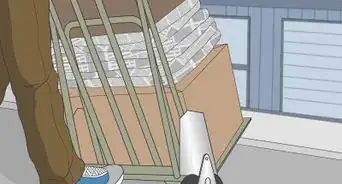
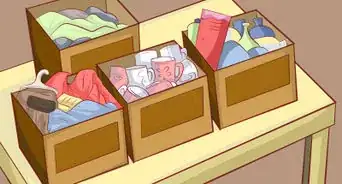
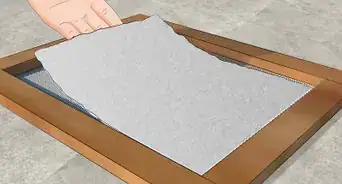
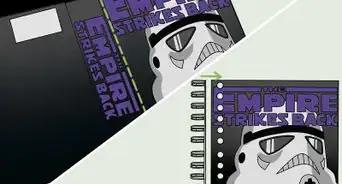
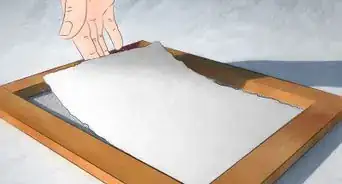
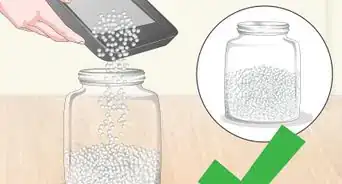
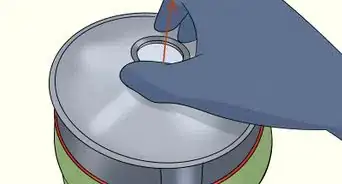 3 Ways to Cut Open a Mini Keg for DIY Projects
3 Ways to Cut Open a Mini Keg for DIY Projects

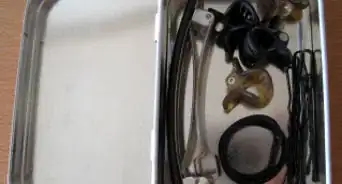

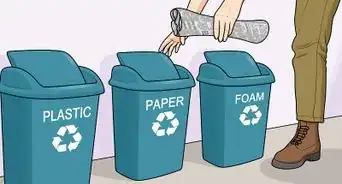
References
- ↑ https://www.geappliances.com/ge/service-and-support/donation.htm
- ↑ https://www.grandviewresearch.com/industry-analysis/e-commerce-household-appliances-market-report
- ↑ https://www.epa.gov/rad/find-rad-partner-programs
- ↑ https://youtu.be/SimFHkM3B_k?t=127
- ↑ https://www.beltontexas.gov/departments/public_works/solid_waste_services.php
- ↑ https://www2.montgomerycountymd.gov/DepHowDoI/material.aspx?tag=scrap-metal&material_key=69
- ↑ https://www.epa.gov/rad/find-rad-partner-programs
- ↑ https://www.epa.gov/section608/frequently-asked-questions-about-safe-disposal-refrigerated-household-appliances#link2
- ↑ https://www.epa.gov/section608/frequently-asked-questions-about-safe-disposal-refrigerated-household-appliances#link2
About This Article




